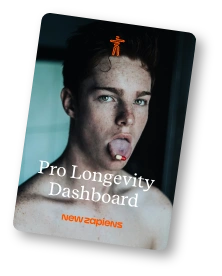Community Discussions
Glycine & Fasting: Does It Break the Fast?
I’ve been taking glycine in the evening to support sleep. Works well for me so far.
For a while, I was doing 16:8 fasting and I’m now thinking about getting back into it because of the potential autophagy benefits.
But here’s my question:
If I take glycine in the evening, does it break my fast and stop autophagy?
Also wondering what actually matters more:
Better sleep from glycine
or
Staying in a fasted state for autophagy benefits?
What would you prioritize?
Also open to any tips on what supplements are fine during fasting and which ones are better to avoid.
I’ve been taking glycine in the evening to support sleep. Works well for me so far.
For a while, I was doing 16:8 fasting and I’m now thinking about getting back into it because of the potential autophagy benefits.
But here’s my question:
If I take glycine in the evening, does it break my fast and stop autophagy?
Also wondering what actually matters more:
Better sleep from glycine
or
Staying in a fasted state for autophagy benefits?
What would you prioritize?
Also open to any tips on what supplements are fine during fasting and which ones are better to avoid.
Please sign in to post a reply.
